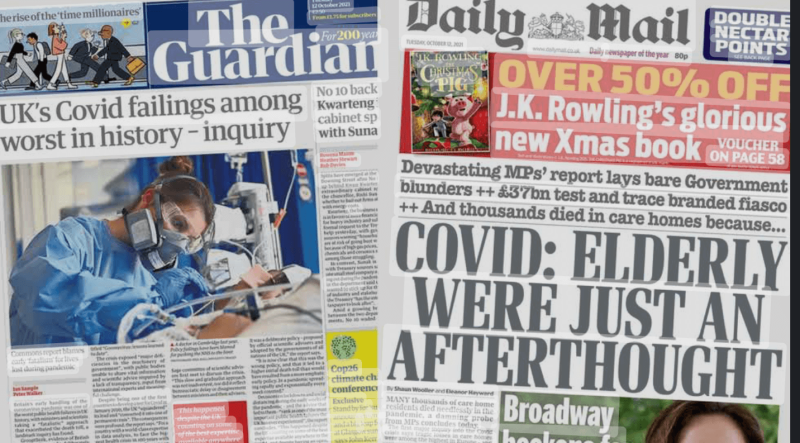
Another lesson from the news coverage of COVID: How poorly-written headlines can adversely impact the lives of readers
To state the obvious, the writer of a headline should read the article
by Henry I. Miller
Genetic Literacy Project
January 4, 2024
https://henrymillermd.org/27427/another-lesson-from-the-news-coverage-of-covid

Two friends independently emailed me a recent article from CNN's website with this headline, which prompted them to ask whether they should forgo the new COVID vaccine:
Whoever composed the headline, which unnecessarily stoked fear among the most vulnerable, clearly did not read the article.
In January of last year, the CDC and FDA issued a public communication which explained that one of the CDC's vaccine safety monitoring databases had detected a small risk of stroke for older adults who received a dose of Pfizer's bivalent COVID-19 vaccine and a high-dose flu shot on the same day.
The FDA then looked more closely in the medical records of seniors on Medicare at the possibility of strokes or transient ischemic attacks after vaccination. About 600,000 Medicare-age patients suffer a stroke each year.
The CNN article clarified that "the risk identified in the FDA's study appears to be very small — roughly 3 strokes or transient ischemic attacks for every 100,000 doses given. The study also found it may be primarily driven by the high-dose or adjuvanted flu vaccines, which are specially designed to rev up the immune system so it mounts a stronger response to the shot." The high-dose vaccines provide greater protection against flu for people 65 and over.
It is noteworthy that, as the CNN article said, the three events per 100,000 doses administered includes not only actual strokes but also transient ischemic attacks, which, by definition, are transient and do not leave sequelae. That further minimizes the significance of the association (assuming it is real).
The article also quoted Dr. Steve Nissen, a cardiologist and researcher at the Cleveland clinic, who added more perspective on the stroke risk: "The absolute risk is miniscule," and is trivial compared to the risk of the elderly dying from COVID. (He might have added that the risk of stroke or transient ischemic attacks from vaccination is also miniscule compared to the risk of often-debilitating long COVID, the persistence of signs and/or symptoms following an acute COVID infection.)
The article further clarified that at least five other recent studies, many intended specifically to evaluate whether there is a link between the vaccines and strokes— "have not found any additional risk of stroke after vaccination for COVID-19, influenza or both." (Emphasis added)
Dr. Tom Shimabukuro, director of the Immunization Safety Office at the CDC, underscored that conclusion: "Available data do not provide clear and consistent evidence of a safety problem for ischemic stroke with bivalent mRNA COVID-19 vaccines when given alone or given simultaneously with influenza vaccines."
The article also emphasized that researchers currently recommend that "everyone should still get vaccinated since an increase in risk of a stroke after vaccination is dwarfed by the increased risk of stroke or other serious outcomes following either a flu or COVID-19 infection."
It concludes with a quote from Dr. William Schaffner, an eminent infectious disease expert at Vanderbilt University, making the same point:
The risk of serious disease associated with both influenza and COVID for the population at highest risk, which is of course, older persons, is so much greater than the potential increased risk associated with a vaccine.
None of this nuance was captured by the flawed title. Headline writers should at least read the article before composing the headline.
Henry I. Miller, a physician and molecular biologist, is the Glenn Swogger Distinguished Fellow at the American Council on Science and Health. He was the founding director of the FDA's Office of Biotechnology. Find him on X @henryimiller
receive the latest by email: subscribe to henry i. miller m.d.'s free mailing list


